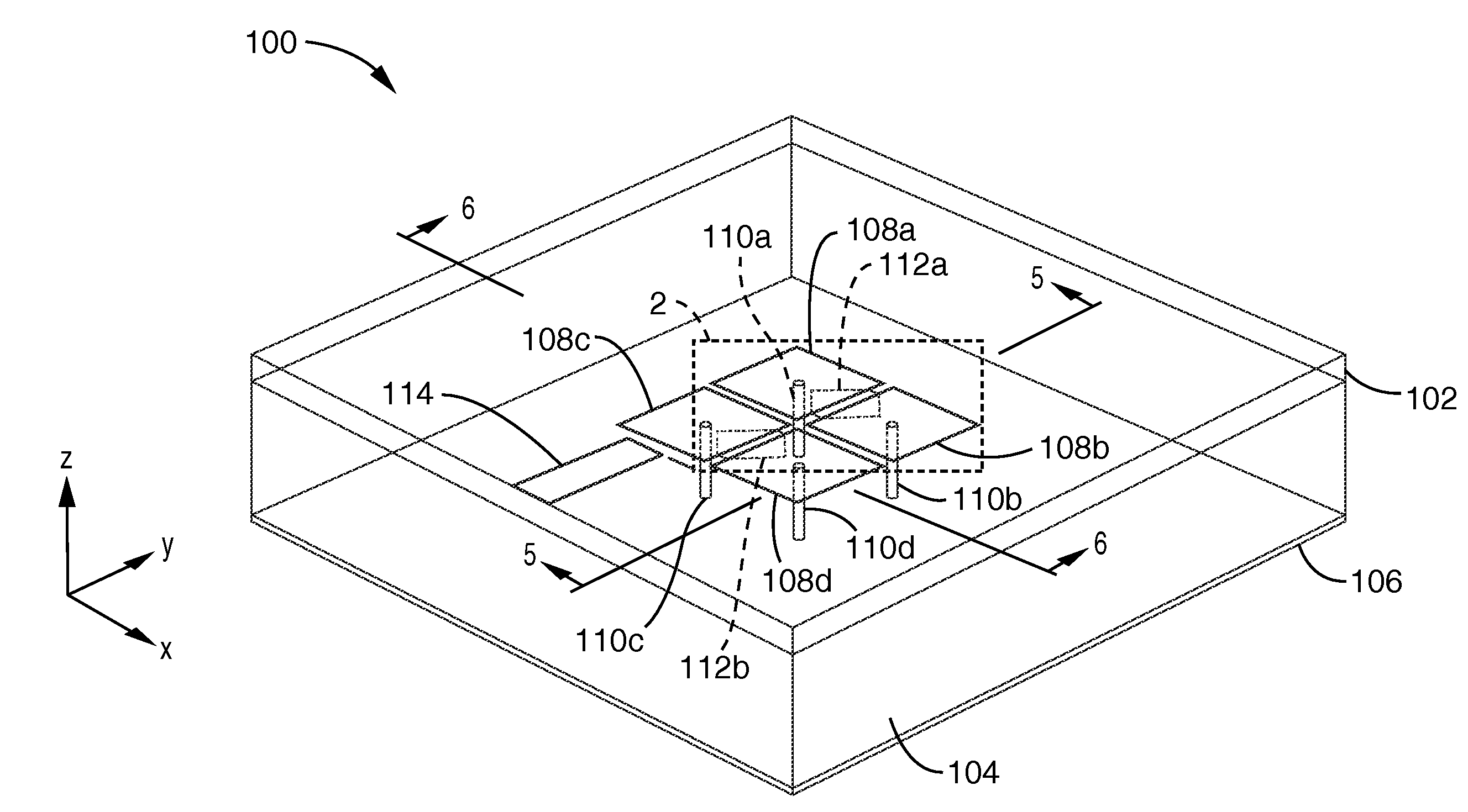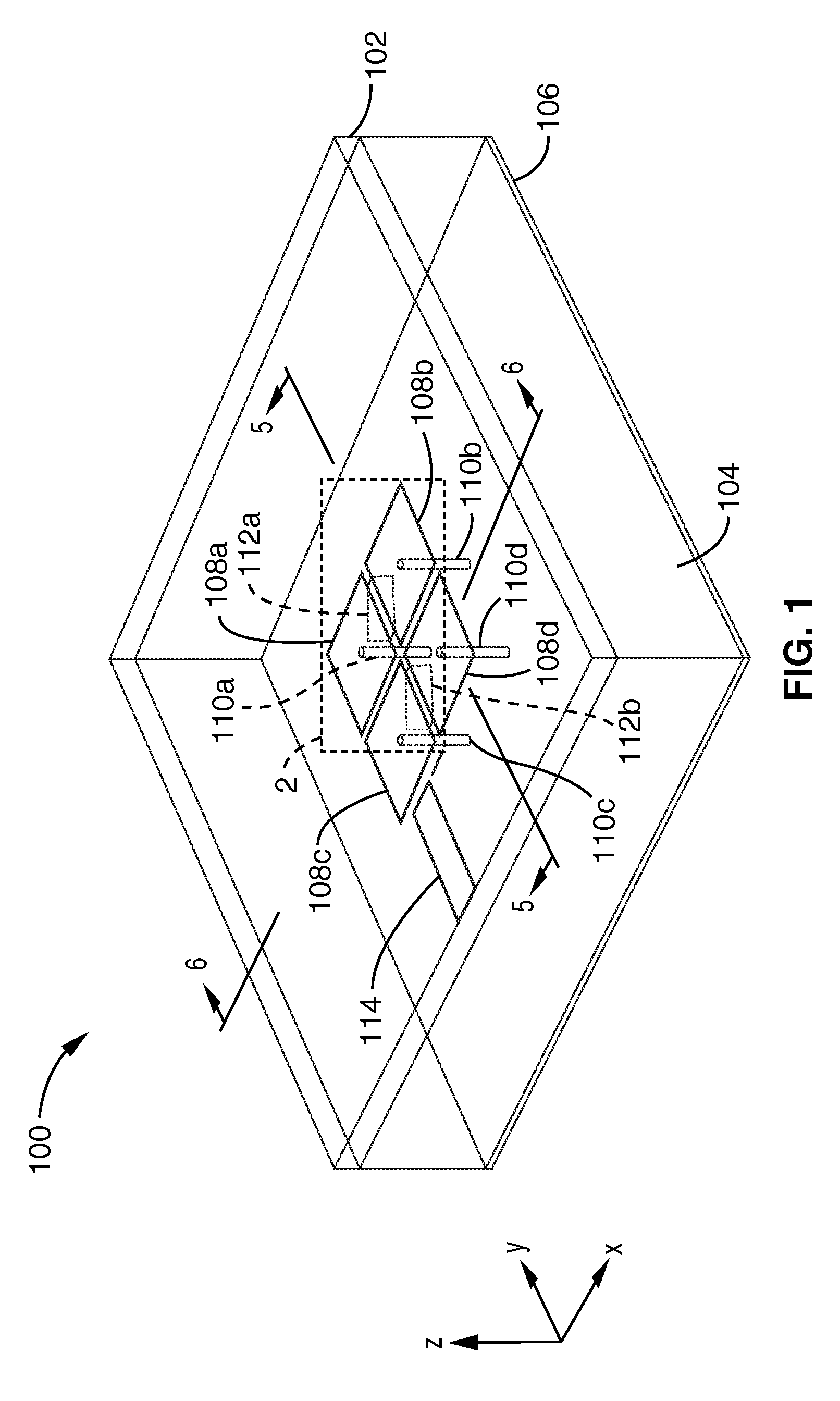Compact dual-band resonator using anisotropic metamaterial
a dual-band resonator and anisotropic metamaterial technology, applied in the direction of antennas, antenna details, basic electric elements, etc., can solve the problem of shrinking the antenna size, achieve better impedance matching, achieve small antennas, and achieve higher radiation efficiency.
- Summary
- Abstract
- Description
- Claims
- Application Information
AI Technical Summary
Benefits of technology
Problems solved by technology
Method used
Image
Examples
example
[0046]A prototype compact dual-band antenna was fabricated using the design shown in FIG. 1 through FIG. 3 and FIG. 4 through FIG. 8 and the dimensions shown in FIG. 9 and FIG. 10 for operation generally at 1.9 GHz and 2.4 GHz in the x- and y-directions, respectively. RT / Duroid material was used for the substrate, and 0.8 mil thick copper was used for the patches. The thicknesses of the upper substrate layer was chosen so that its dielectric constant ∈ was much greater than that of the lower substrate layer, the dielectric constants of the upper and lower layers being approximately 10.0 and 2.2, respectively. The microstrip feedline was positioned in an offset feed configuration and coupled to the antenna by a 0.1 mm gap. The particular width of the microstrip feedline was chosen for impedance matching at 50-ohms.
[0047]As can be seen in the figures, the left edge of the feedline is offset from the left edge of the patch by 0.4 mm. This places the center of the feedline at 0.325 mm l...
PUM
 Login to View More
Login to View More Abstract
Description
Claims
Application Information
 Login to View More
Login to View More - R&D
- Intellectual Property
- Life Sciences
- Materials
- Tech Scout
- Unparalleled Data Quality
- Higher Quality Content
- 60% Fewer Hallucinations
Browse by: Latest US Patents, China's latest patents, Technical Efficacy Thesaurus, Application Domain, Technology Topic, Popular Technical Reports.
© 2025 PatSnap. All rights reserved.Legal|Privacy policy|Modern Slavery Act Transparency Statement|Sitemap|About US| Contact US: help@patsnap.com



